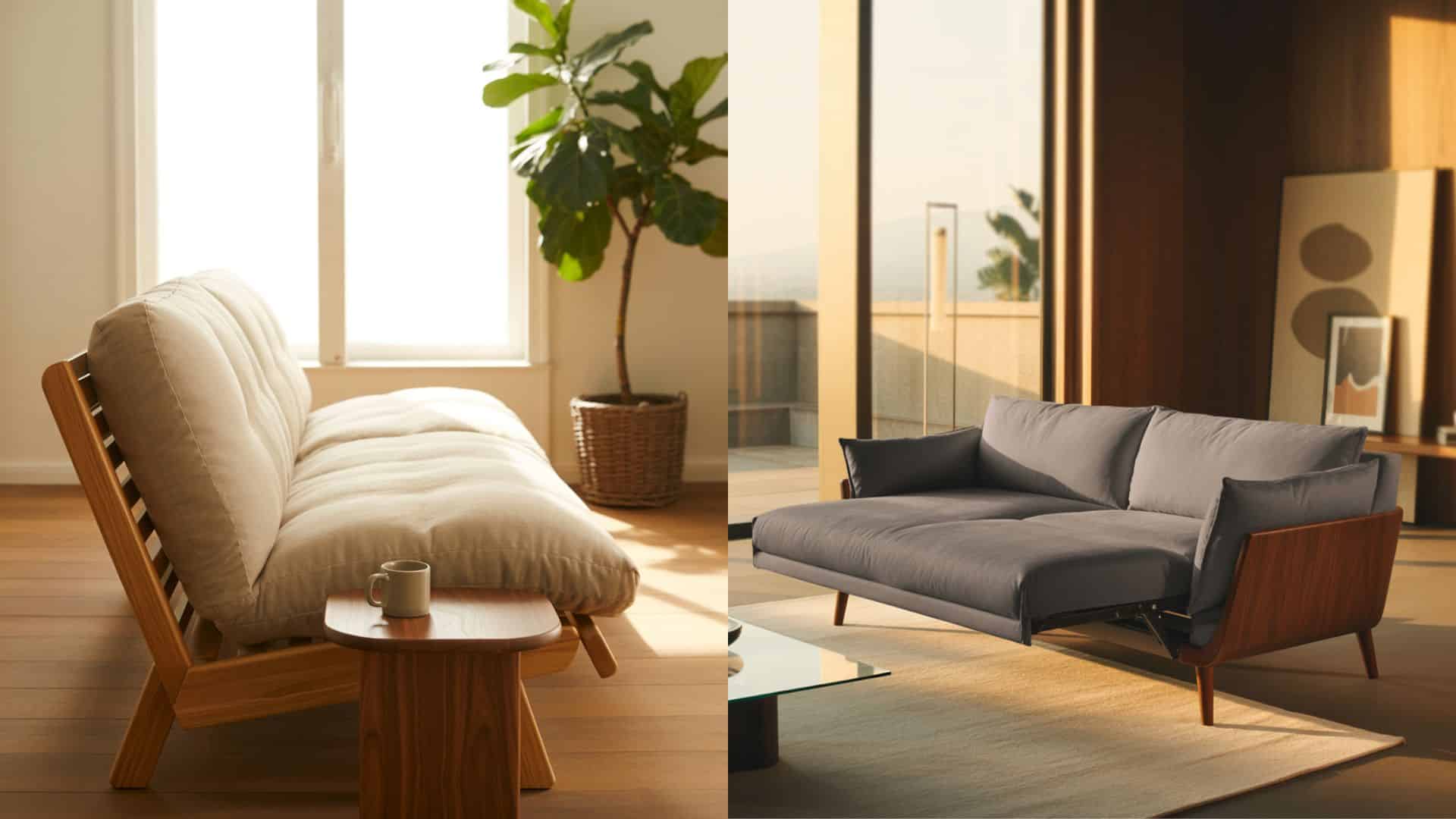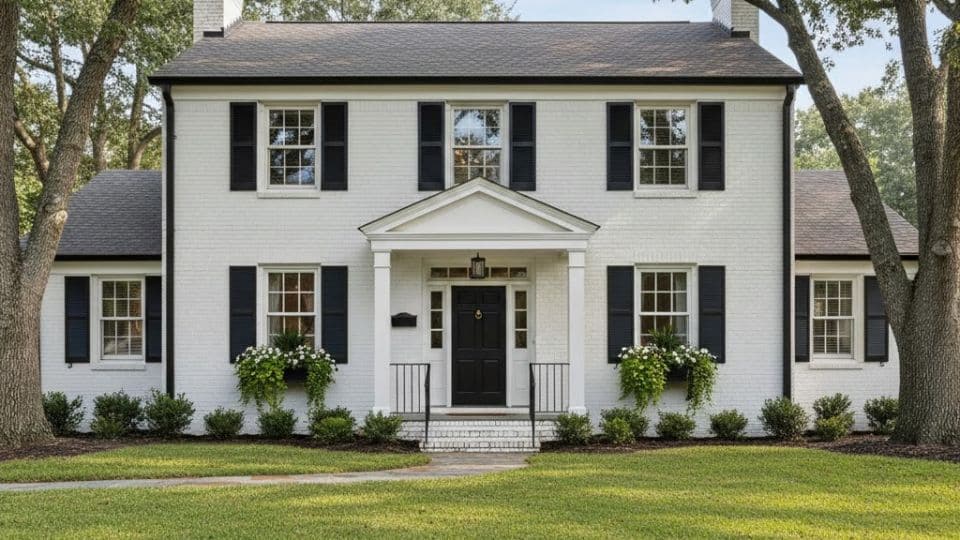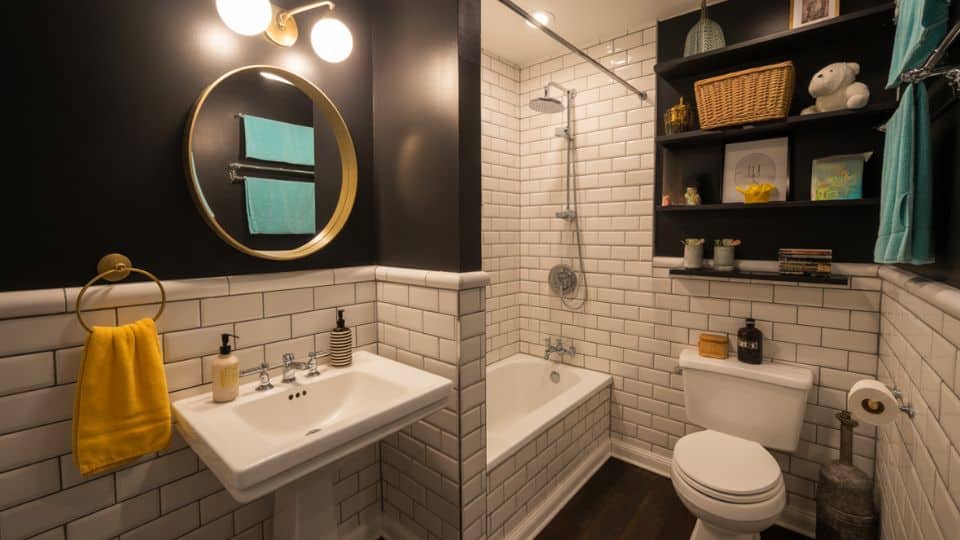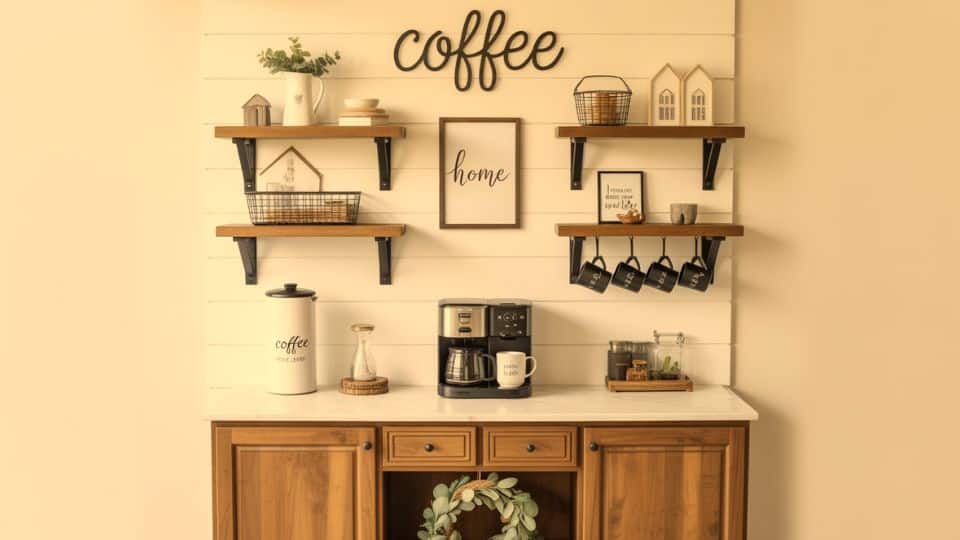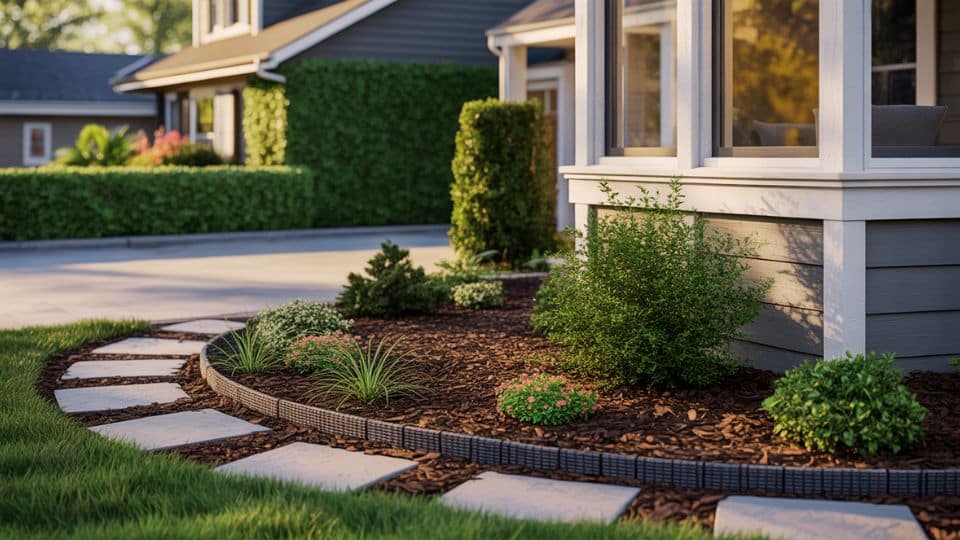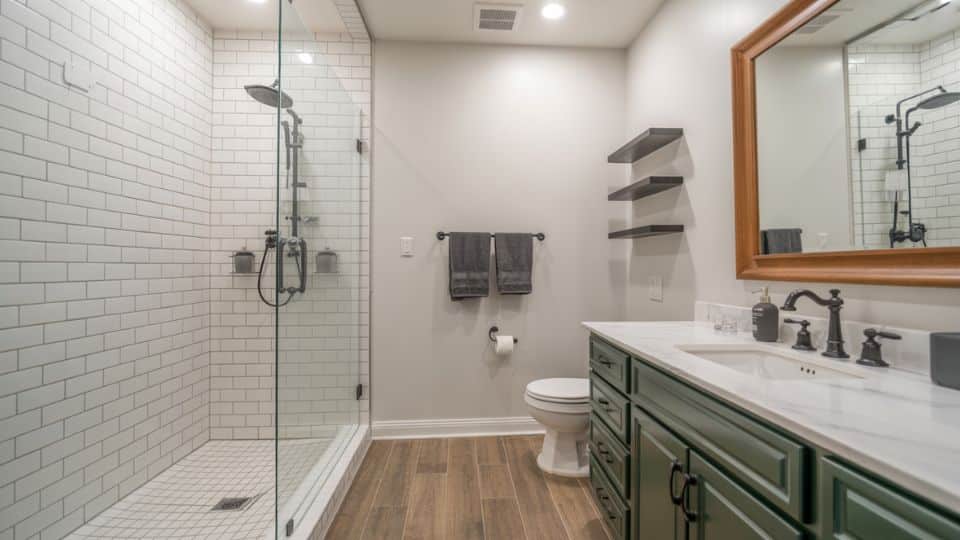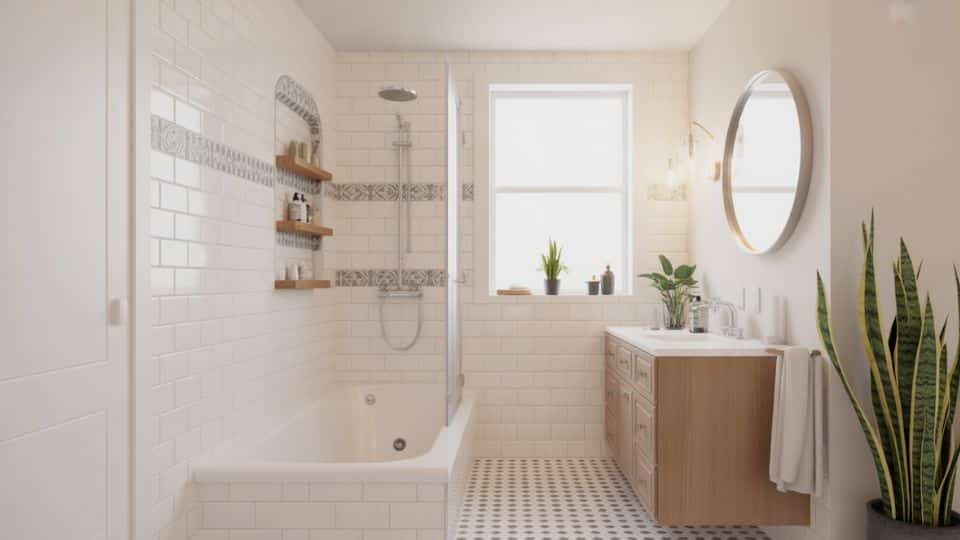Which one saves space without sacrificing comfort: a futon or a sofa bed?
This question matters when you’re furnishing a small apartment or setting up a guest room. Both options convert from seating to sleeping.
But they work very differently. A futon folds flat on a simple frame. A sofa bed hides a pull-out mattress inside. Your choice affects comfort, budget, and room layout.
This guide compares futons vs. sofa beds across key factors. You’ll learn which fits your space, lifestyle, and guests’ needs.
We’ll talk about comfort levels, durability, pricing, and practical uses to help you choose the option that works best for your home.
What is a Futon?
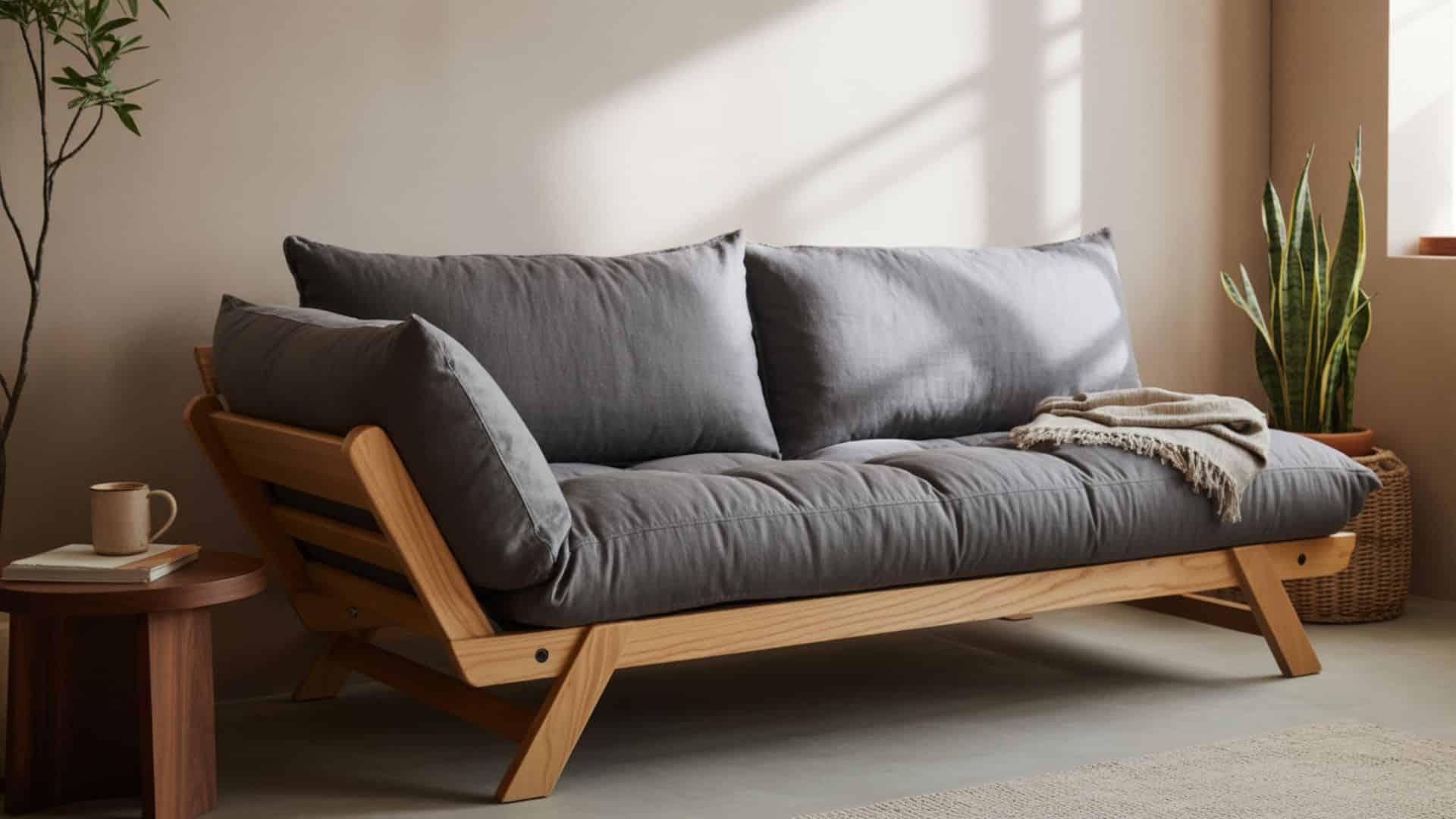
A futon is a piece of furniture that originated in Japan. It consists of a thin mattress placed on a foldable frame. The design is simple and practical.
Key features include:
- Thin mattress (usually 6-8 inches thick)
- Foldable metal or wood frame; converts from sitting to sleeping position
- Lightweight construction; easy to move around
- Simple design; fits well with minimalist decor
Futons work best in specific situations. They’re perfect for college dorms where space is tight. Small studio apartments benefit from their compact size.
If you only need a guest bed a few times per year, a futon makes sense.
The mattress sits directly on the frame. You can fold it up during the day to create seating space. At night, you can make it flat for sleeping.
What is a Sofa Bed?
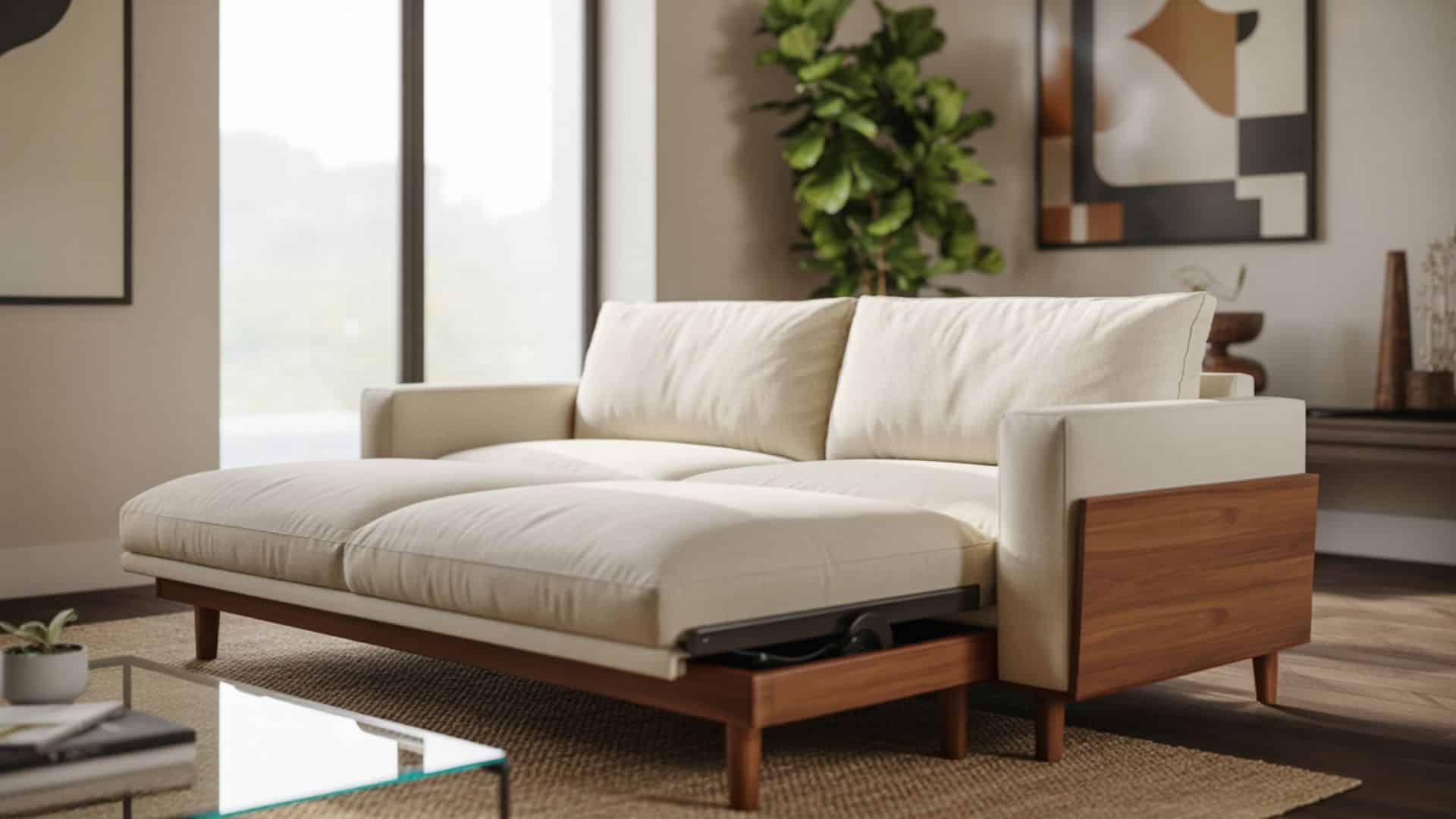
A sofa bed looks like a regular couch. But it hides a mattress inside. You pull out the mattress when someone needs to sleep.
The outside has traditional upholstery. It comes in various fabrics, including cotton, linen, and microfiber. The frame is built to support both sitting and sleeping.
Main characteristics:
- Hidden pull-out mattress (stored inside the sofa frame)
- Thick cushioning (comfortable for daily sitting)
- Traditional sofa appearance (matches standard living room furniture)
- Heavier construction (built to last longer)
Sofa beds fit naturally in living rooms. They work well in home offices that double as guest rooms. The mattress is thicker than a futon mattress, usually 4-6 inches for the pull-out mechanism.
You use it as regular seating most of the time. When guests arrive, you remove the cushions and pull out the mattress.
Let’s take a look at the major differences between a futon and a sofa bed.
Key Differences Between Futons and Sofa Beds
Choosing between a futon and a sofa bed depends on comfort, durability, space, and budget. Knowing the key differences helps you pick the best option for your living space and your guests’ needs.
| Feature | Futon | Sofa Bed |
|---|---|---|
| Comfort | Firmer, thinner mattress (6–8 in). Best for occasional guests; not ideal for frequent use. | Thicker mattress (4–6 in) with memory foam or innerspring. Better support for multiple nights. |
| Durability | Lightweight frame. Mattress lasts 3–5 years; frame may squeak over time. | Sturdy frame. Pull-out mechanism designed for frequent use; lasts 7–10 years. |
| Space & Portability | Compact, lightweight, and easy to move; ideal for small spaces. | Bulkier; needs more floor space and clearance to pull the mattress out. |
| Design & Style | Casual, simple, minimalist look. Limited colors; functional appearance. | Resembles a regular couch. Hidden mattress maintains clean look. |
| Price & Budget | Affordable: $150–$500 for mid-range. Replacement mattresses $100–$200. | Higher cost: $400–$1,500+. Premium models include better construction and comfort. |
| Material & Health | Often natural fillings: wool, latex, coconut coir. Breathable, low chemicals, allergy-friendly. | Mostly synthetic foams. Some low-VOC options are available; look for CertiPUR-US certification. |
Ultimately, futons are ideal for occasional use and smaller spaces, while sofa beds provide superior comfort, durability, and style for regular use.
Consider your lifestyle and budget to make the right choice for your home.
There are certain factors to consider while choosing the right option for your needs. Let’s see when a futon becomes the right choice.
When to Choose a Futon?
Some situations clearly favor a futon. Here’s when this option makes the most sense.
- You host guests occasionally. If friends or family visit a few times per year, a futon handles the job.
- Your space is limited. Small apartments and dorm rooms benefit from compact furniture.
- You’re on a tight budget. When money is limited, a futon provides basic functionality.
- You move frequently. Renters who relocate often appreciate lightweight furniture.
- You prefer a minimalist design. If you like simple, functional furniture, a futon fits the bill.
- You want natural materials. Futons with wool or latex filling offer eco-friendly options.
- Your needs are temporary. A futon serves as a short-term solution with minimal investment.
Pro tip: Add a mattress topper to improve comfort. A 2-inch memory foam topper makes a big difference for occasional guests.
Now that we know when to buy a futon, let’s get an idea of when a sofa bed is a good fit.
When to Choose a Sofa Bed?
Other situations call for the investment in a sofa bed. Consider this option when these factors apply.
- Guests sleep over regularly. If you have monthly or more visitors, comfort matters.
- You use it for nightly sleeping. Some people use their convertible furniture as their primary bed.
- Your living room needs real seating. If the piece serves as your main couch, a sofa bed is the right choice.
- Comfort is your priority. When you want guests to sleep well, the thicker mattress makes sense.
- You plan to keep it long-term. If you’re staying put for several years, durability matters.
- You have adequate space. Larger rooms accommodate the bulk.
- You can afford the investment. With $800 or more to spend, you get significantly better quality.
Pro tip: Test the pull-out mechanism in the store. Make sure it operates smoothly. A difficult mechanism becomes frustrating quickly.
Conclusion
Choosing between a futon and a sofa bed comes down to three factors: space, budget, and how often guests sleep over.
Futons cost less and fit perfectly into smaller rooms. They work well for occasional use in dorms or studios. Sofa beds offer better comfort and last longer. They’re ideal for frequent guests or nightly sleeping.
Consider your specific needs before buying. Measure your space carefully. Think about guest frequency honestly.
Test both options in stores if possible. The right choice makes your home more functional without wasting money.
Ready to shop? Start by measuring your room and setting a realistic budget. Your perfect guest sleeping solution is out there.

